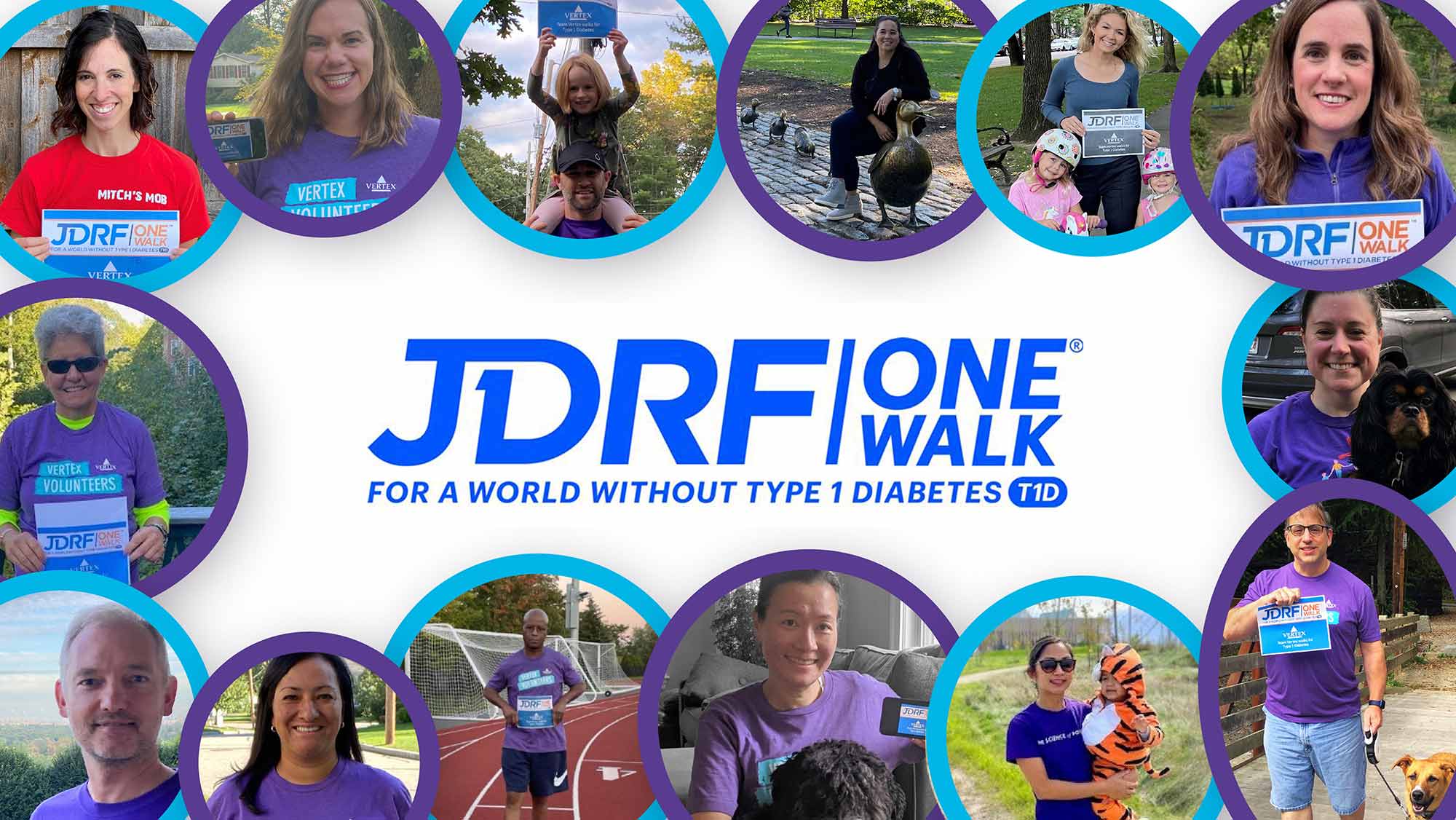At Vertex we’re focused on developing potentially transformative new therapies for diseases where we have a deep understanding of the underlying causal biology. Type 1 diabetes (T1D) is a perfect example of this. In people with T1D, the cells in the pancreas that produce insulin (beta cells) are destroyed by autoimmune processes. This leads to complete deficiency of insulin, a hormone that’s needed for metabolism. Insulin controls the transport of nutrients into cells. Its absence leads to cells throughout the body, like muscle or liver cells, failing to take up nutrients properly. In people with T1D, this results in high levels of sugar in the blood that can be damaging and dangerous.
Our aim is to address the underlying cause of T1D by developing therapies to potentially replace the insulin-producing cells that are destroyed. Building on work pioneered in the laboratory of Dr. Douglas Melton and at Semma Therapeutics (acquired by Vertex in 2019), the Vertex team is investigating novel stem cell derived islet cell therapies to hopefully achieve this goal. We have invested in building world class teams and capabilities in research and manufacturing across multiple technology platforms, and we remain committed to advancing these investigational medicines in the clinic. You can learn more about our innovative science in this short video, Vertex Forward: Diving Into Type 1 Diabetes.
As highlighted in the video, we believe our science is the next frontier in T1D, and that our team has what it takes to succeed — innovative technologies, a highly collaborative team and a relentless determination to solve every challenge that comes our way. Along with the science and technology, we also believe that it’s important to bring more visibility to this disease. Insulin treatment has improved the lives of people with T1D, their families and caregivers, but there is more work to do to hopefully develop a treatment that would target the underlying cause of the disease.
People living with T1D have to manage their disease twenty-four hours a day, seven days a week, for their entire lives. They have to give themselves insulin — a life-saving drug — throughout the day to keep their blood sugar from being too high. However, there’s a delicate balance between blood sugar that’s too high (not enough insulin) or too low (too much insulin), and these levels are impacted by just about every aspect of daily life — diet, exercise, sleep, stress and more. This is the challenge that people with T1D live with every day. Abnormally high or low blood sugar levels can cause life-threatening complications, and chronic high blood sugar levels lead to increased risk of serious long-term complications including damage to the eyes, kidneys, nerves and heart.
These challenges are what motivate us to develop potential new therapies for people with T1D. It’s also why we strongly support both World Diabetes Day and National Diabetes Month in November, and it’s why Team Vertex was proud to join patients, families and supporters for the virtual 2021 JRDF One Walk — our second year participating. Throughout September, more than 60 Vertexians walked or ran more than 1,700 miles to share our commitment to help put an end to T1D, one step at a time.


